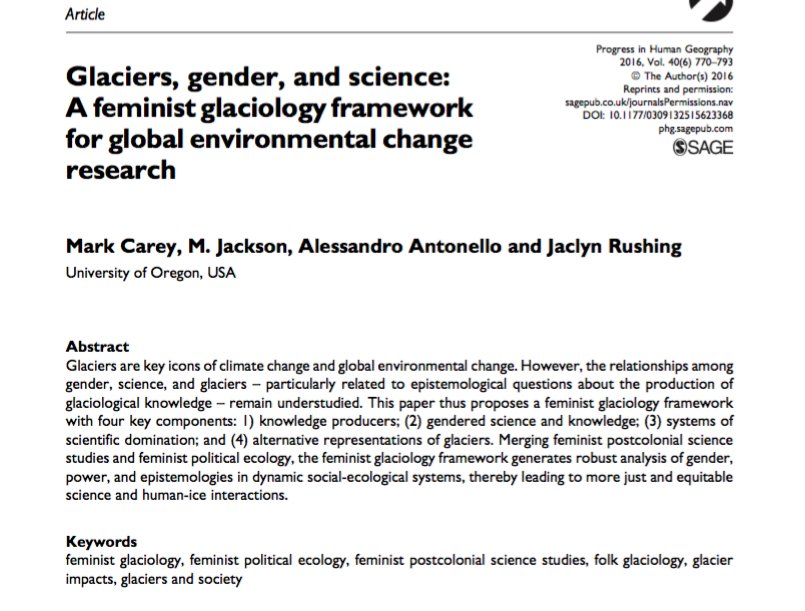journals.sagepub.com/doi/abs/10.117…

They're wrong.
"In the you-can’t-make-this-stuff-up pile today comes word of an academic paper that ponders the notion of gender as it relates to … blocks of ice." ~ The College Fix
"Academic gibberish" ~ Powerline
"A new low in climate 'science'" ~ NYPost
reason.com/blog/2016/03/0…

a) Why is a particular scientific field dominated by men?
b) How does this affect public perceptions of that field?
c) How does it shape policy choices?
...then there's something here for you.
honors.uoregon.edu/mark-carey
"Kurlansky finds the world in a grain of salt." ~ NYTimes, on "Salt"
“One of the 25 Best Books of the Year.” ~ The New York Public Library, on "Cod"
“Required reading.” ~ NYPost, on "Banana"










